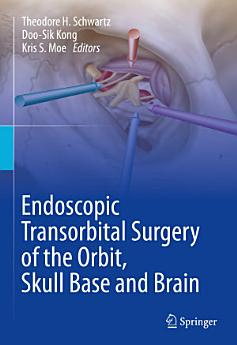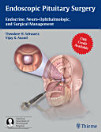Endoscopic Transorbital Surgery of the Orbit, Skull Base and Brain
About this ebook
In the last decade, using the endoscopic techniques and instrumentation, otolaryngologists, oculoplastic surgeons and neurosurgeons, have together shown that the orbit can be used as a minimally disruptive corridor to reach the skull base lateral to the carotid artery as well as other areas that are difficult to access through transcranial or endonasal approaches. These approaches are now even being used to remove brain tumors involving the frontal and temporal lobes, including those that extend through the middle cranial fossa and into the posterior fossa, without visible external scars or the need for a traditional craniotomy. In addition, they have been used to clip aneurysms, treat seizure disorders, drain abscesses, repair CSF (brain fluid) leaks, and restore skull fractures – all without the additional risks, trauma and prolonged recovery of previous open surgical techniques. The literature is now demonstrating that these endoscopic procedures have comparable or improved safety compared to open surgery, while creating less collateral damage, and result in reduced patient stays.
Due to their novelty, few surgeons have acquired the necessary experience, knowledge and expertise to introduce these approaches into their practice, yet due to their safety and efficacy they are rapidly becoming a critical skill set. This is the first text of its kind to codify and proliferate these new approaches more rapidly through the country and world, appealing to otolaryngologists, oculoplastic surgeons and neurosurgeons who deal with pathology involving the skull base.
About the author
Theodore H. Schwartz, MD, David and Ursel Barnes Professor of Minimally Invasive Brain Surgery, Vice-Chairman, Clinical Research, Department of Neurosurgery, Weill Cornell Medical College, New York Presbyterian Hospital, New York, NY, USA
Doo-Sik Kong, MD, PhD, Department of Neurosurgery, Samsung Medical Center, Sungkyunkwan University School of Medicine, Seoul, South Korea
Kris S. Moe, MD, Department of Otolaryngology-Head and Neck Surgery, University of Washington School of Medicine, Seattle, WA, USA




